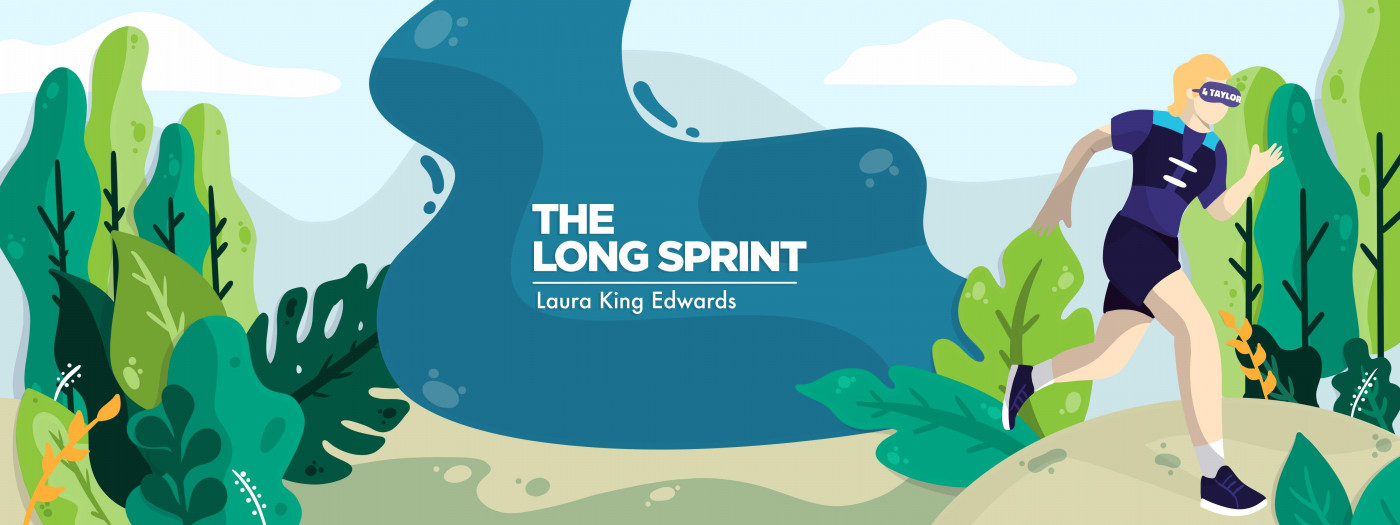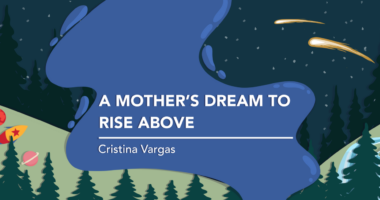Doctors are trained to think horses, but what about the zebras?
A columnist reflects on the children who are fighting rare disease

I celebrated a birthday toward the tail end of Rare Disease Week, matching my mother’s age on the sticky summer night when she brought my sister, Taylor, into the world. It’s been decades since our family of four became a family of five, and yet I haven’t forgiven my teenage self for the way I reacted to the news that Mom and Dad were going to have a baby. Had I known the baby would have Batten disease, would I have done things differently?
An inconvenient addition
As I wrote in my 2018 memoir, “Run to the Light,” “I was 16 when Taylor was born and hadn’t wanted anything to do with a new baby. I had my own agenda, and it didn’t include my mother getting pregnant.”
In fact, when Mom called me into her closet on a frigid January day to share the big news, I didn’t hug her or even look her in the eye. Instead, I tugged on my running shoes and tore through the icy rain, my feet slapping against the pavement as I ran. When I returned home with soggy shoes and tear-streaked cheeks, I pretended the conversation in Mom’s closet didn’t happen.
Eight months later, I answered the phone at soccer practice and heard Dad’s excited voice on the other end of the line. I said congratulations … and went back to my team. I didn’t meet my baby sister until she arrived home from the hospital several days later.
Maybe I should give myself a break. This all happened a long time ago, and my mother has even said I made up for my early transgression in spades.
But it’s difficult to ignore the irony of the situation. After Taylor’s 2006 CLN1 disease (infantile Batten disease) diagnosis, I would have done anything to save the sister I didn’t want.
A sobering thought
Matching Mom’s age when she had my baby sister may not sound like much, but it’s made me think about the finer points of parenthood — and the blessings most of us tend to take for granted.
I was 36 when I had my son, earning the unfortunate “advanced maternal age” label. (Really, couldn’t the medical community come up with a better name?) Because I was over 35, I received genetic counseling, reviewing the common risks associated with having a baby at my age. In those appointments, we talked about conditions such as preeclampsia and Down syndrome.
Thankfully, we went through with the pregnancy — I can’t imagine life without Jack — but what if one of the tests had come back abnormal? It’s impossible to know what I would have done. And yet, it’s a question I’ve pondered off and on because of what Taylor endured.
Had Mom and Dad known they were carriers, perhaps I wouldn’t have had a sister. But they didn’t know, of course — because nobody talks about Batten disease unless they have a reason to talk about it. Taylor, among other things, was the one who exposed the defective gene lurking on both sides of the family. She was the one who suffered the most.
What about the zebras?
There’s a reason the rare disease community adopted the zebra as its mascot. Doctors are taught: “When you hear hoofbeats, think horses, not zebras.” In other words, when evaluating a patient, doctors are trained to first think of the most common diagnosis.
As a mom, I’ve heard hoofbeats in the past several weeks — concerns that could easily come to nothing yet riled me up enough to deliver a sober reminder of what my parents faced when they learned their bonus child had Batten disease. Truly, I don’t know how they did it. The diagnosis or the uncertain days that followed. The worsening symptoms. The long goodbye.
I think that deep down, most of us want the very best for our children. That’s just part of being a parent, and it’s why I’ll probably fret over my own son’s well-being until long after he’s able to take care of himself.
But what about the zebras? Who will stand up and demand the very best care and quality of life for the children fighting an ultra-rare disease, as my sister did?
I don’t know all of the answers, but I know this: The zebras can count on me.
Note: Batten Disease News is strictly a news and information website about the disease. It does not provide medical advice, diagnosis, or treatment. This content is not intended to be a substitute for professional medical advice, diagnosis, or treatment. Always seek the advice of your physician or other qualified health provider with any questions you may have regarding a medical condition. Never disregard professional medical advice or delay in seeking it because of something you have read on this website. The opinions expressed in this column are not those of Batten Disease News or its parent company, Bionews, and are intended to spark discussion about issues pertaining to Batten disease.







Leave a comment
Fill in the required fields to post. Your email address will not be published.